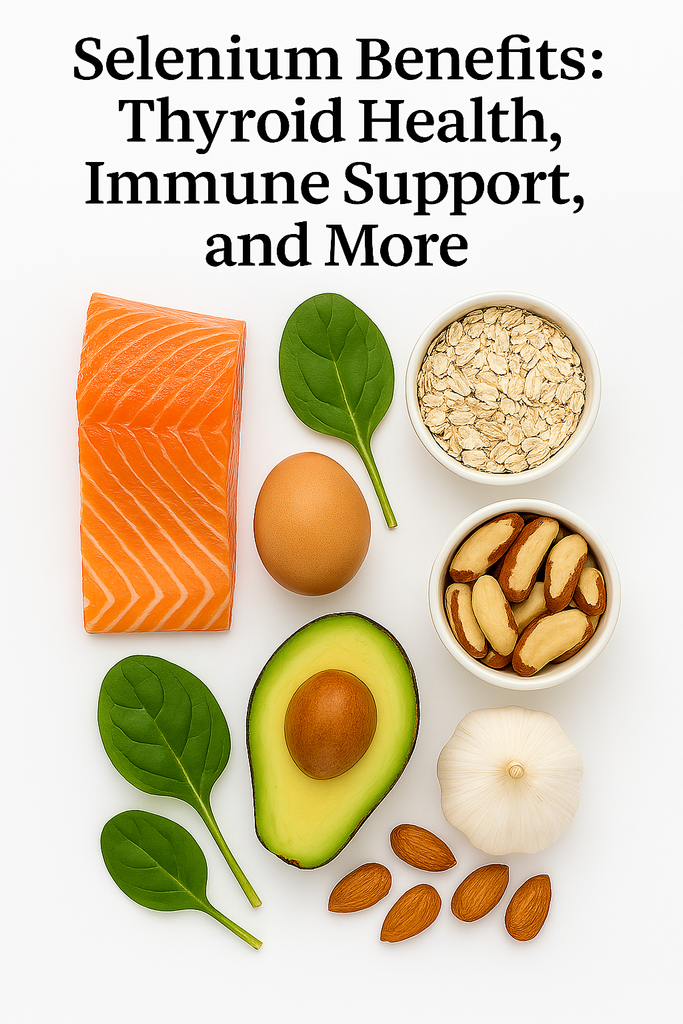News
L-Theanine Benefits: Anxiety, Focus, Sleep, and More
amino acids for brain brain calming supplements how L-theanine works L-theanine L-theanine and anxiety L-theanine and caffeine L-theanine and focus L-theanine and GABA L-theanine benefits L-theanine dosage L-theanine for ADHD L-theanine for kids L-theanine for stress L-theanine safety L-theanine side effects L-theanine sleep aid natural calm supplements natural nootropics natural sleep support tea amino acid
In a fast-paced world filled with distractions, stress, and sleepless nights, it’s no wonder people are searching for natural solutions to enhance calm, focus, and mental clarity. One such standout compound is L-theanine—a calming amino acid found primarily in green tea. It's known for promoting relaxation without sedation, improving focus without stimulation, and supporting better sleep without grogginess.
From students and professionals seeking cognitive performance to individuals dealing with stress or occasional insomnia, L-theanine offers a gentle yet powerful solution. Backed by scientific research and centuries of traditional use, this article explores the many benefits of L-theanine, how it works, and how to make it a part of your wellness routine.
Dehydration Symptoms in Babies: A Complete Parent’s Guide
baby crying no tears baby dehydration baby hydration checklist baby vomiting hydration dehydration and breastfeeding dehydration emergency baby dehydration in newborns dry mouth in infants electrolyte baby solution fewer wet diapers fluid loss in infants how to rehydrate baby hydration baby summer infant fever dehydration oral rehydration solution for babies ORS for babies parenting baby dehydration signs of dehydration in infants sunken fontanelle baby
Babies are especially vulnerable to dehydration. Their small bodies lose water more quickly than adults, and they can't always communicate their discomfort. Whether it's due to a bout of diarrhea, a fever, or simply not getting enough fluids, dehydration in infants can become serious fast. That’s why understanding the early signs and what to do about them is crucial for any parent or caregiver.
Because dehydration can escalate rapidly in infants, early detection is key. The good news? Many of the warning signs are visible—if you know what to look for. This comprehensive guide covers everything from mild symptoms to emergency red flags, plus how to rehydrate your baby safely and when to call the doctor. Think of it as your hydration safety net during those stressful parenting moments.
Mullein Leaf Extract Dosage for Bronchitis: Safe & Effective Use Guide
anti-inflammatory herbs lungs bronchitis herbal relief herbal lung support herbal treatment for chest congestion mullein capsules for cough mullein children dosage mullein dosage bronchitis mullein for bronchitis mullein leaf extract mullein respiratory health mullein side effects mullein tea for bronchitis mullein tincture dosage natural bronchitis remedies natural expectorant herbs verbascum thapsus bronchitis
Bronchitis, characterized by persistent coughing, mucus buildup, and inflammation of the bronchial tubes, can make breathing feel like a chore. While conventional treatments focus on symptom relief, many are turning to natural remedies like mullein leaf extract to soothe irritation and support respiratory recovery. Known for its anti-inflammatory, antiviral, and expectorant properties, mullein (Verbascum thapsus) has been used for centuries in herbal medicine to ease coughs and clear the lungs.
But while mullein's benefits are well-documented in both folk traditions and emerging research, one crucial question remains for those seeking relief: how much should you take? In this guide, we’ll explore the science behind mullein leaf extract, outline safe and effective dosages for bronchitis, and discuss the best forms, timing, and precautions so you can breathe easier—naturally and confidently.
Minoxidil: The Hair Regrowth Miracle? What Science Says
hair follicle stimulation hair loss treatment hair regrowth hair thinning how to use minoxidil minoxidil minoxidil 5% minoxidil before and after minoxidil dosage minoxidil for men minoxidil for women minoxidil results minoxidil side effects minoxidil timeline natural hair loss remedies oral minoxidil pattern baldness treatment rogaine scalp health topical minoxidil
Hair loss affects millions of men and women worldwide, often leading to stress, lowered self-confidence, and an ongoing search for effective solutions. Among the treatments available today, minoxidil stands out as one of the most popular—and scientifically studied—options for regrowing hair. Commonly recognized under brand names like Rogaine, minoxidil has earned a reputation for delivering noticeable results, but is it truly a miracle solution?
In this article, we dive into the science behind minoxidil, its benefits and limitations, how it works, and what you can realistically expect from this widely used hair regrowth treatment. Whether you're battling early signs of thinning or more advanced hair loss, understanding how minoxidil fits into your hair health strategy can help you make a more informed decision.
Selenium Benefits: Thyroid Health, Immune Support, and More
best selenium foods brazil nuts selenium essential nutrients selenium and autoimmunity selenium and fertility selenium and inflammation selenium antioxidant selenium benefits selenium brain function selenium deficiency symptoms selenium dosage selenium for thyroid selenium heart health selenium immune system selenium nutrition selenium supplement guide selenium toxicity selenomethionine thyroid support supplements trace minerals
Selenium may be a trace mineral, but its importance for human health is anything but small. Often overshadowed by more popular nutrients like zinc or magnesium, selenium plays a critical role in thyroid function, antioxidant defense, immune response, and even fertility. It’s one of the body’s most powerful natural defenders against cellular damage and inflammation.
Found naturally in soil, selenium enters the food chain through plants and animals. While it’s needed only in microgram amounts, a deficiency or imbalance can lead to fatigue, thyroid dysfunction, or weakened immunity. In this article, we’ll explore the many ways selenium supports your health and how to ensure you’re getting enough through diet or supplements.





